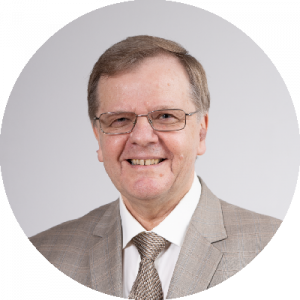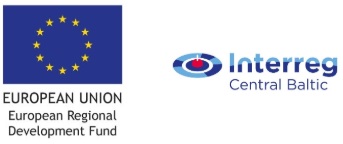Home > Harmonised and Modernised Multidisciplinary Railway Education (EDU-RAIL)
Контролеры:
,

Academic degree and current position in TSI: Professor, Dr.sc.ing. Dr.hab.sc.ing, leading researcher of the Engineering Faculty, Director of PhD Programme “Telematics and Logistics”.
Previous Experience: Founder and President of Transport and Telecommunication Institute for over 15 years, Vice-rector for Research and Development Affairs for more than 10 years
Membership: Member of the Joint OECD/ITF Transport Research Committee (OECD – Organization for Economic Co-operation and Development, ITF – International Transport Forum), Member of Institute of Electrical and Electronics Engineers (IEEE), Corresponding Member of Latvian Academy of Science, President of Latvian Transport Development and Education Association, President of Latvian Operations Research Society, Editor-in-Chief of the Journal «Transport and Telecommunication», Member of the board of the Journals “Transport”, “Technological and Economic Development”, “Journal of Aviation Technology and Engineering” etc.
Academic experience: Author of more than 600 academic and research publications, author of 68 patents. Expert of the Latvian Council of Science in Civil and Transport Engineering, Chairman of promotion council for PhD degree in Civil and Transport Engineering, Chairman of Professor Council in Telematics and Logistics.
Teaching at post- and graduate level: 45 years of pedagogical experience in university; courses: Research Methodology (PhD programme); New Trends of Telematics and Logistics Development (PhD programme), Research Methodology (MSc programme), Theory of Systems and System Analysis (MSc programme), Transport Policy (MSc programme), Intelligent Transport Systems (MSc programme), Reliability Engineering (BSc programme) etc.
Participation in projects: has participated in 37 international projects (in 26 projects as national coordinator of the projects) and 26 Latvian research projects and programs (in 23 as head of the projects) within the frame of COST Activities, Horizon 2020, Framework Programs, INTERREG etc.
Research Interests: Transport Telematics and Logistics, Smart Cities, Analysis and Modelling of Transport Systems, Intelligent Transport Systems, Reliability of Electronics Systems, Internet of Things, Cyber-Physical Systems, Information Technology Applications, Electronics and Telecommunication, Decision Support Systems, Avionics, Air Traffic Control Systems and others.
Supervised Doctoral, Master and Bachelor Theses: Supervisor of 9 PhD theses and more than 200 Master and Bachelor theses.
Awards: 2 Gold and 5 Silver Medals of International Research and Innovation Exhibition of Innovators (1985-1990); Honorary title “Latvian Honored Inventor”, Latvian Parliament (1989); Award for Innovative Excellence in Teaching, Learning and Technology, USA (1998); Award and memorial medal for outstanding research in computer science and informatics, Latvian Academy of Sciences (2001); Award and memorial medal for outstanding performance of research in air navigation, communication and radar technology, Latvian Academy of Sciences (2002); Certificate of Recognition as a significant contribution to the research and educational work in the transport, logistics and information technology, as well as on the international success in science, Cabinet of Ministers of the Republic of Latvia (2014); Certificate of Honor of the Latvian Academy of Sciences for research in the field of transport and logistics (2019).

Interreg Central Baltic poster of the project
General information
Project “Harmonised and Modernised Multidisciplinary Railway Education” (EDU-RAIL) started in October 2015 within the frame of INTERREG Central Baltic Programme 2014-2020.
The project EDU-RAIL aims at reducing fragmentation of railway engineering, transport and logistics vocational education and training programmes in the region. By harmonising and modernising railway education through jointly developed regional specialisation modules the project contributes to the development and further integration of the Central Baltic labour market.
In practice the project jointly develops aligned specialisation modules that take into account the needs of the regional labour market, including shared challenges of further integration with European railway system and joint regional aspects. The harmonised and modernised teaching process allow the railway institutions to better prepare the educate specialists for the regional employers need and demand in order to enable smooth cross-border rail transportation within the common transport area.
As a result of the project five multipurpose specialisation modules are designed for full-time students and for in-service training programmes. The project contributes to reducing fragmentation of railway education in the region by harmonising railway engineering, transport and logistics programmes. Cross-border cooperation enables the educational institutions to achieve the necessary methodological strength to solve together regional challenges and to raise the quality of railway vocational education and training programmes.
Lead partner of the project is TTK University of Applied Sciences (Tallinn, Estonia).
Project partners are KRAO (Kouvola, Finland), Transport and Telecommunication Institute (Riga, Latvia), Häme University of Applied Sciences (Hämeenlinna, Finland) and Riga Technical University (Riga, Latvia).
Additional information about the project is at the webpage http://edu-rail.tsi.lv
Working packages
| Working packages | WP title | WP responsible partner |
| WP1 | Management | TTK University of Applied Sciences |
| WP2 | Specialisation modules | Häme University of Applied Sciences |
| WP3 | Module subjects,
methodology and materials, piloting |
Riga Technical university |
| WP4 | Communication | TTI Transport and Telecommunication Institute |
The project EDU-RAIL aims at reducing fragmentation of railway engineering and logistics vocational education and training programmes in the region. By reducing fragmentation of railway education through jointly developed regional specialisation modules the project contributes to the development and further integration of the Central Baltic labour market. The project jointly develops aligned specialisation modules that take into account the needs of the regional labour market, including shared challenges of further integration with European railway system and joint regional aspects. The harmonised and modernised specialisation modules allow the railway institutions to better prepare the educate specialists for the regional employers need and demand in order to enable smooth cross-border rail transportation within the common transport area.
Directions of modules were approved on the 1 st Steering Group Meeting of EDU-RAIL project (Tallinn, 9.10.2015).
The topics of the modules
| Modules | Titles of modules | Responsible partner |
| Module 1 | Single European Railway Area | TTI |
| Module 2 | General Professional Knowledge and Requirements Regarding the License | KRAO |
| Module 3 | Service Oriented and Intelligent Transport System on the Context of Opening Markets | HAMK |
| Module 4 | Control and Command Systems of Rail Traffic | RTU |
| Module 5 | Logistic Management and Operating of Rail Traffic | TTK |
| TTI – Transport and Telecommunication Institute
KRAO — Kouvolan rautatie ja aikuiskoulutus OY HAMK — Häme University of Applied Sciences RTU – Riga Technical University TTK — TTK University of Applied Sciences |
||
All project partners will support the responsible partners in development of the modules.
Aims of modules
Module 1: Single European Railway Area
To introduce the students to the strategic legislative and technical documents related to the development and operation of rail sector in the Single European Transport Area, with focus on the Single European Railway Area. The goal is to give a comprehensive understanding of the EU strategies for Transport in general and with focus on rail related issues especially — as directives, railway packages, technical specifications, research and development.
Module 2: General Professional Knowledge and Requirements Regarding the License
The aim of module is to facilitate VET programs for rail traffic safety related professions. In focus will be the curricula of teaching train drivers. The general training in this respect will focus on basic knowledge and principles that are applicable independently of the type and nature of rolling stock or infrastructure. Subjects of the module are supported with exercises on the rail simulators.
Module 3 Service Oriented and Intelligent Transport System and Services in Context of Opening Markets
Aim of the module is to give the basic knowledge how to organize the railway business in context of opening markets and development toward the Single European Railway Area. The role of the Rail Regulatory Body and security certificate will be highlighted. In focus will be the impact of the new and open business environment, use of innovations and new thinking model, which is based on use of smart solutions, client oriented and customized services. Mobility is understood as service.
Module 4 Control and Command Systems of Rail Traffic
The main target of the Module is to understand and harmonize train control systems of the national railways taking into account international transit corridors and necessity of support passenger and freight transportation among countries. The Module embraces main principles of building any train control systems, also takes into account the specifics and practices of each viewed country both from a technical point of view and in terms of legal regulation. The material of the Module includes information about the common Train Control System (European Rail Traffic Management System- ERTMS), the system of GSM-R data transmission and the material about national systems of traffic management and communication.
Module 5 Logistic Management and Operating of Rail Transport
Aims of the Module: module is centered on the rail transportation systems as whole, particularly on the role of rail freight systems and their components. The module provides the knowledge and skills in the field of overall Logistics Management including railway technology and management. This module provides a common understanding of the railway system, freight transport operations, management and technology required for sustainable and intelligent rail freight system design and operation.
Information dessimination:
Information (21 November 2016)
Information (30 November 2016)
Information (01 December 2016)
Information (20 December 2016)
Reports:
Summary of partners work. Activity 2.3
Project received funding from European Regional Development Fund up to 358 402,10 euros.
Contact information
Administrative Project Manager — Kristina Bushell (kristina@tktk.ee)
Content Project Manager — Wladimir Segercrantz (wladimir@tktk.ee)
Project website with all reports and information materials: http://eprints.tktk.ee/4123/